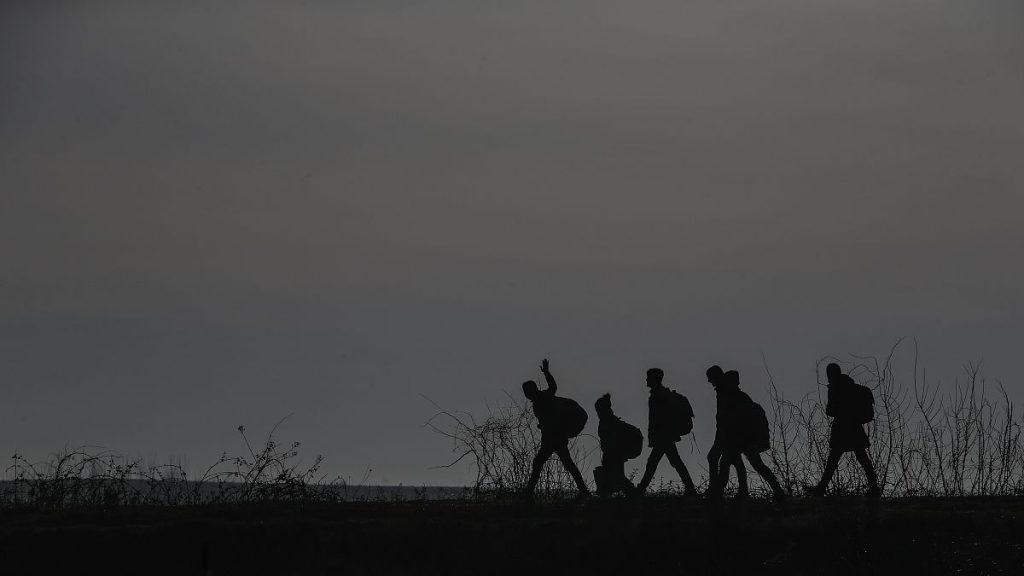The European Union is grappling with the complexities of migration management, with a renewed focus on deportations and the implementation of the new Migration and Asylum Pact. This renewed focus comes amidst a backdrop of fluctuating arrival numbers and ongoing debates about border security and human rights. Greece, a frontline state in the migration challenge, has been advocating for stricter controls and increased support from the EU to manage the influx of migrants arriving at its borders. The recent visit of EU Migration Commissioner Magnus Brunner to Athens underscores the importance of this issue and the need for collaborative solutions. Brunner emphasized the commitment of the EU executive branch to prioritize deportations and ensure the effective implementation of the new pact, which aims to streamline and standardize migration procedures across the bloc.
Greece’s geographical location makes it a primary entry point for migrants attempting to reach Europe, particularly those crossing the Aegean Sea from Turkey. This has placed a significant strain on the country’s resources and fueled calls for stronger border protection measures. Prime Minister Kyriakos Mitsotakis has consistently highlighted the burden borne by Greece and welcomed the EU’s shift towards stricter border control and a greater emphasis on returning migrants who do not qualify for asylum. This emphasis on returns aligns with the EU’s broader strategy to deter irregular migration and manage the flow of asylum seekers more effectively.
The new Migration and Asylum Pact, adopted by the European Parliament in 2024, represents a significant step towards a unified EU approach to migration. The pact aims to encompass all aspects of migration management, from the initial identification and processing of asylum seekers to the accelerated border procedures and the resettlement of recognized refugees. The goal is to create a more predictable and efficient system that balances the need for humanitarian protection with the imperative to maintain secure borders. The pact’s success, however, hinges on the commitment of member states to its implementation and their willingness to cooperate on issues such as burden-sharing and the allocation of resources.
Despite the EU’s focus on stricter controls and increased deportations, the issue of human rights remains a critical concern. A recent ruling by the European Court of Human Rights condemning Greece for illegal deportations and highlighting the issue of “pushbacks” underscores the tension between border security and the protection of fundamental rights. Greece denies engaging in pushbacks, insisting that its migration policy is both strict and fair. However, the court’s ruling highlights the need for greater scrutiny of border control practices and the importance of ensuring that all migration management activities are conducted in accordance with international law and humanitarian principles.
The fluctuating numbers of irregular arrivals add another layer of complexity to the migration challenge. While Frontex reported a decrease in irregular border crossings in 2024, the situation remains dynamic and subject to various factors, including geopolitical instability, economic conditions, and the effectiveness of border control measures. Greece, experiencing an increase in sea arrivals over the past 18 months, is seeking direct EU funding to expand its border wall along the Turkish frontier, reflecting the ongoing efforts to strengthen physical barriers and deter irregular crossings. However, the efficacy and ethical implications of such measures remain subjects of debate.
The visit of Commissioner Brunner to Athens and subsequently to Cyprus signifies the EU’s commitment to engaging with frontline member states and addressing their specific concerns. The discussions with Greek ministers focusing on migration, maritime affairs, and foreign affairs reflect the multifaceted nature of the migration challenge and the need for a comprehensive and coordinated response. The EU’s emphasis on deportations, the implementation of the new pact, and the ongoing dialogue with member states demonstrate a renewed determination to manage migration flows effectively while upholding fundamental human rights. The balancing act between these competing priorities will continue to shape the EU’s migration policy in the years to come.














